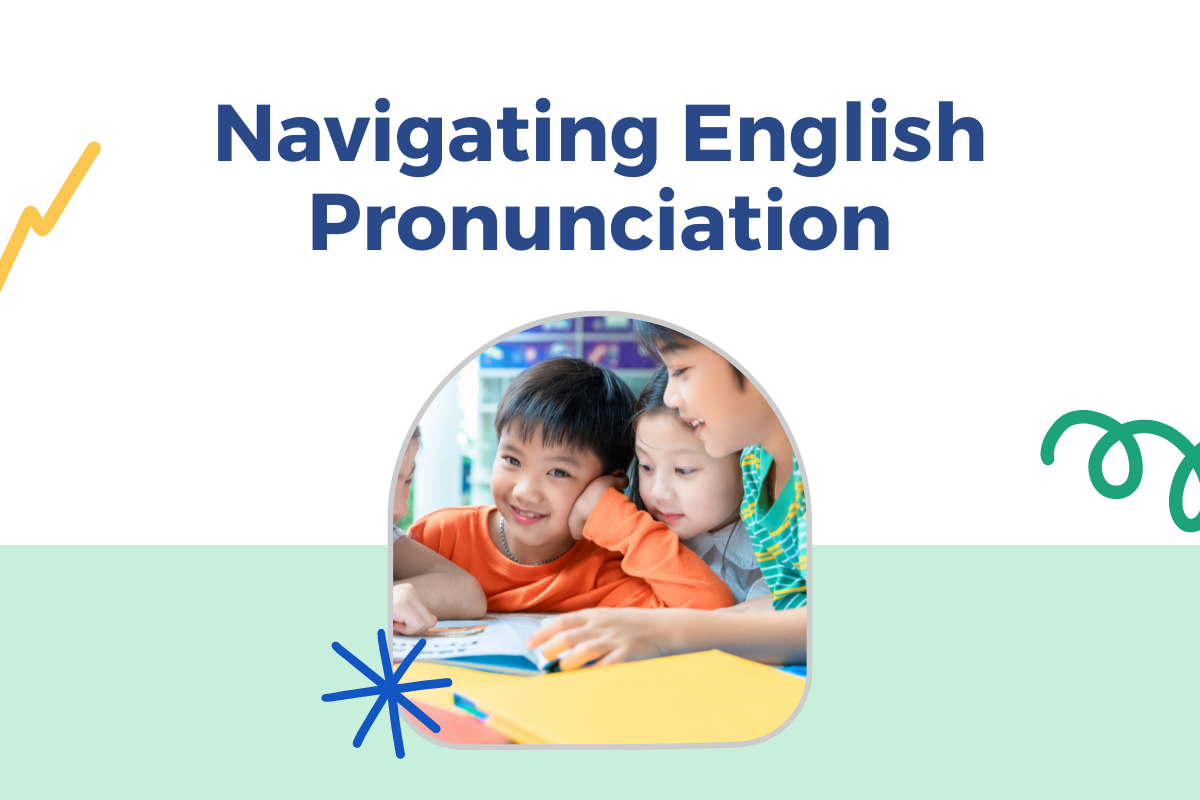Navigating English Pronunciation: Tips and Tricks for Young Learners
- July 14, 2023
- admin
- 0

English pronunciation can be a tricky aspect for young learners, but with the right strategies and guidance, children can develop clear and accurate speech patterns. In this blog post, we will explore some effective tips and tricks to help young learners navigate English pronunciation with confidence.
Whether you’re a parent or a teacher, these practical techniques will assist you in supporting your children’s language development and fostering their spoken English skills.
To lay a strong foundation for English pronunciation, it is crucial to focus on phonics and sound awareness. Help children become familiar with individual sounds by teaching them phonetic symbols or using phonics-based resources. Engage them in activities that encourage sound discrimination, such as identifying beginning sounds, rhyming words, and blending sounds to form words. Incorporate interactive games, flashcards, and even online phonics apps that make learning fun and interactive. By strengthening their sound awareness skills, children will become more proficient in pronouncing English words accurately.
Tongue twisters are not only entertaining but also serve as excellent tools to improve pronunciation. Encourage young learners to practice tongue twisters like “She sells seashells by the seashore” or “Peter Piper picked a peck of pickled peppers.” Tongue twisters help develop speech clarity, enunciation, and tongue muscle coordination. Additionally, incorporate mimicking exercises where children imitate native speakers’ pronunciation, intonation, and rhythm. Model sentences, phrases, or short dialogues for them to repeat, paying attention to stress patterns and natural cadence. This practice will enhance their ability to replicate native-like speech patterns.
In today’s digital age, there are numerous pronunciation apps and online resources available to assist young learners in improving their pronunciation skills. Interactive apps like Sounds Pronunciation App, English Pronunciation in Use, or FluentU offer audio recordings, visual cues, and interactive exercises that target specific pronunciation challenges. Our platform provides videos, tutorials, and practice exercises that cater to different phonetic aspects. Encourage children to explore these resources and practice independently, allowing them to listen to and repeat words, phrases, and sentences at their own pace. Such tools can provide additional practice and reinforcement beyond classroom or home-based learning.
Engaging children in meaningful conversations and role-play activities provides a practical approach to mastering pronunciation. Encourage them to engage in dialogue with peers, family members, or native English speakers whenever possible. Role-play scenarios, such as ordering food at a restaurant or acting out a favorite story, allow children to practice pronunciation in a realistic context. Provide feedback and correction in a supportive manner, focusing on specific sounds or words that require improvement. By incorporating pronunciation into everyday communication, children will develop a better understanding of how pronunciation impacts effective language usage.
Conclusion:
Helping young learners navigate English pronunciation is an essential part of their language development. By incorporating these tips and tricks into their learning journey, parents and teachers can empower children to communicate confidently and express themselves fluently in English.

